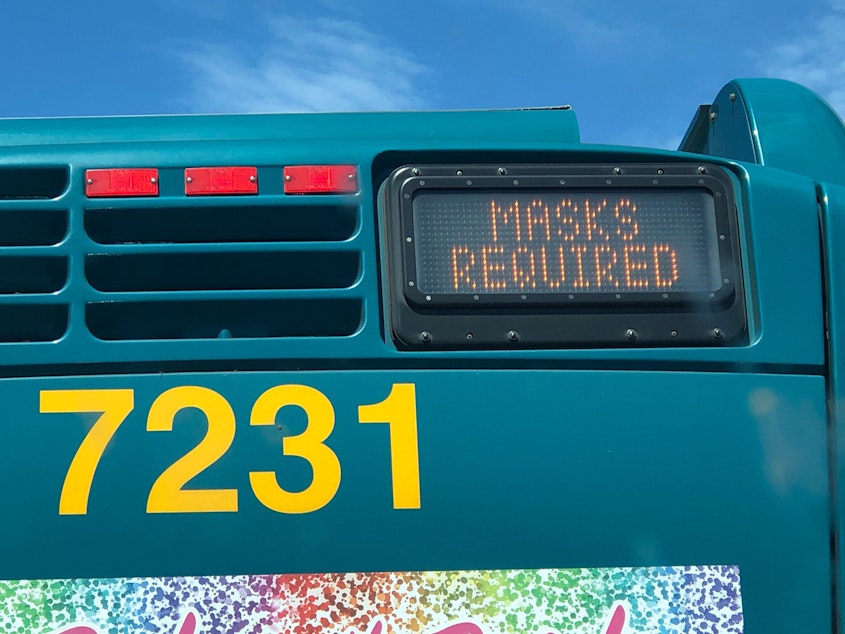King County Metro reveals post-pandemic recovery strategy

The pandemic has caused bus ridership to drop by two-thirds in King County. As a result, the county’s transit agency has cut back many bus lines.
Now, Metro says it has a plan, or at least a strategy, for rebuilding. The King County Council will consider the funding behind that plan this week.
Metro’s most reliable customers are the essential workers of South Seattle and South King County.
In contrast, North Seattle and Eastside riders have abandoned Metro buses at the highest rate during the pandemic. That’s because more people in those areas can work from home.
In a new report, Metro says after the pandemic, it’ll use an equity lens to decide where to increase bus service first. Generally, that means more buses in the southern part of the county.
In contrast, bus ridership in north King County is likely to rebound more slowly. That’s because many people working from home now – may continue to work part time from home even after the pandemic. Thus, many bus lines in the north will receive lower priority.
But even if bus ridership bounces back to pre-pandemic levels by the end of 2022, such tough decisions may be inevitable. That's because the money needed to ramp bus service back up will probably take longer to regenerate.
Sponsored
Before the pandemic, Metro was already expecting a $1 billion shortfall over the next 10 years. But now, that projection has doubled.
One reason: People aren’t doing as much shopping during the pandemic, and Metro gets money from sales tax. Additionally, with ridership so low, the department is collecting fewer bus fares.
Consequently, Metro is cutting back on its shopping, too. A new bus base for South King County is on hold. And hundreds of metro workers have either been laid off or invited to retire early.
But some big purchases can’t be put off, such as charging stations for the 40 new battery powered buses Metro will receive in 2021. And Metro's employees successfully negotiated a new contract with pay increases right before Covid-19 hit.
On Thursday, the King County Council will dive deep into Metro's proposed budget. In the weeks that follow, the council may nudge things in a different direction.

